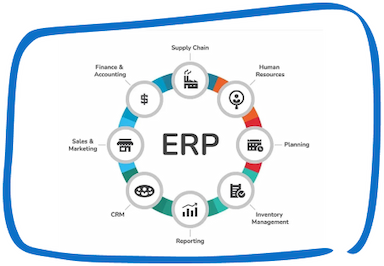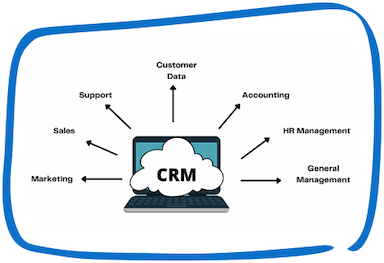A Designated Zone is an area specified by the cabinet decision that fulfills the conditions outlined in the UAE Executive Regulation. Authorities consider it a VAT-free Zone and treat it outside the State of UAE for VAT purposes. Consequently, VAT will not be levied on any transfer of goods between Designated Zones.
This article will categorically discuss the treatment of supplies made From or To Designated Zones.
Supply of goods from
- a Designated Zone to another Designated Zone
- Designated Zones to the Mainland
- the Mainland to Designated Zones
- Designated Zone to overseas/GCC countries
- overseas/GCC countries to Designated Zone
- Supply of services within Designated Zones
- Other exceptional supplies, such as Water, any energy forms, self-consumption of goods in Designated Zones, etc.
VAT treatment on the supply of Goods related to Designated Zones
The authorities do not subject Designated Zones to VAT. They consider them outside the State of the United Arab Emirates, as stated before. Not all suppliers will benefit from this advantage, even if they are outside the State. Some suppliers will still be liable for 5% VAT. Only the supply of items will be tax-free in certain circumstances, as only a few categories of supplies made from or to the Designated Zone will be taxed. The table below details the VAT payable to supplies coming from or going to Designated Zones.
Type of Supplies
From
To
Taxability
Goods
Designated Zone
Designated Zone
Non-Taxable
Goods
Designated Zone
Mainland*
Taxable at 5% VAT
Goods
Mainland*
Designated Zone
Taxable at 5% VAT
Goods
Designated Zone
Oversea/GCC countries
Non-Taxable
Goods
Oversea/GCC countries
Designated Zone
Non-Taxable
As shown in the above table, if the requirements outlined in the UAE Executive Regulations are satisfied, any transfer of products from one Designated Zone to another will not be subject to tax.
Try
VAT exemption conditions for the supply of goods between Designated Zones:
To qualify for VAT exemption on supplies between Designated Zones, you must meet the following conditions:
- During transfer between the Designated Zones, you must not release goods.
- You cannot use or modify the goods between the Designated Zones during transportation.
- The transfer of goods must comply with the rules for customs suspension under the GCC Common Customs Law.
In addition to the above conditions, the authority may request a financial guarantee for tax payment from the owner of goods. It happens if they need to meet the movement requirements.
VAT Treatment on Supply of Services Related to Designated Zones:
While goods from Designated Zones are VAT-free, the same applies to services. If the place of supply is within the Designated Zone, it is subject to the standard 5% VAT rate. It applies to services supplied from the mainland to Designated Zones or within the Designated Zone.
VAT Treatment on Supply of Water or Energy to Designated Zones:
While water and energy supplies are classified as goods, their treatment in Designated Zones differs. Suppose the place of supply of water or energy is within a Designated Zone. In that case, authorities consider it inside the State, and VAT at 5% applies, similar to non-Designated Zone areas in the UAE.
Self-Consumption of Goods in Designated Zones:
If the owner or a third person uses goods supplied within a Designated Zone, authorities consider the place of supply within the State of UAE, making it subject to 5% VAT. The consumption of goods within a Designated Zone shall not be subject to VAT in some limited, exceptional circumstances, such as
- When goods are incorporated into other goods
- attached to other goods
- form part of other goods
- Or businesses within the same Designated Zone use goods to produce or sell another product.
Select Product for Free Demo
Goods with a Designated Zone location that do not have VAT applied
If the owner has not paid VAT on items in a Designated Zone, the authorities will regard their consumption as an import. If the VAT remains unaccounted for, the owner will be liable to pay the VAT. However, if the owner uses these commodities for self-consumption in the instances mentioned above, VAT will not apply.
Emirate
Designated Zone
Abu Dhabi
Free Trade Zone of Khalifa Port
Abu Dhabi Airport Free Zone
Khalifa Industrial Zone
Dubai
Jebel Ali Free Zone (North-South)
Dubai Cars and Automotive Zone (DUCAMZ)
Dubai Textile City
Free Zone Area in Al Quoz
Free Zone Area in Al Qusais
Dubai Aviation City
Dubai Airport Free Zone
Sharjah
Hamriyah Free Zone
Sharjah Airport International Free Zone
Ajman
Ajman Free Zone
Umm Al Quwain
Umm Al Quwain Free Trade Zone in Ahmed Bin Rashid Port
Umm Al Quwain Free Trade Zone on Sheikh Mohammed Bin Zayed Road
Ras Al Khaimah
RAK Free Trade Zone
RAK Maritime City Free Zone
RAK Airport Free Zone
Fujairah
Fujairah Free Zone
FOIZ (Fujairah Oil Industry Zone)
Wrapping Up
It is obvious that depending on the nature of the supply, different supplies associated with Designated Zones receive varying VAT treatment. First, only limited circumstances allow for the benefit of VAT exemption, and services provided within the Designated Zone are subject to tax. Second, to qualify for a VAT exemption on the supply of goods within Designated Zones, businesses must complete the requirements outlined in UAE Executive Regulations. Therefore, companies must comprehend how VAT applies to their supplies, gauge how VAT will affect their operations, and make the necessary plans.
Speak with Our Team!
4.9 Stars
1k+ reviews on






